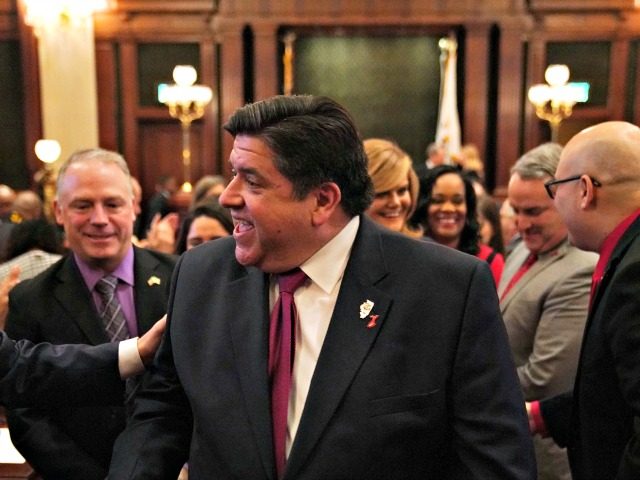The Illinois legislature passed a $43.2 billion budget bill minutes after presentation early in the morning on June 1.
The final General Revenue Fund budget bill was more than 3000 pages. According to Illinois state Rep. Dan Caulkins (R), the bill was “drafted behind closed doors, by the Democrats, without really any input from the Republicans.” The bill reached the Illinois House at 11:30 p.m. on May 31 and passed at 11:55 p.m.
The Illinois Senate did not have a chance to read the final bill until shortly after midnight on June 1, and they voted on it around 3:00 a.m. For the first time ever, they did not have a hearing on the budget and brought it straight to the Senate floor and voted without debate.
The bill is waiting for approval from Gov. J.B. Pritzker (D-IL), who is currently the wealthiest politician in the country with a net worth of $3.5 billion.
The 2022 budget bill includes:
- A reduction of tax breaks, equating to a more than $600 million loss for businesses
- $1 billion for the Rebuild Illinois capital improvements program, focused allegedly on Democrat districts
- $27 million operating budget increase for the General Assembly, which includes a pay increase of more than $1,000 yearly for lawmakers and doubling district office allowances, according to an Illinois GOP spokesperson
- Paying $100 million to the $5 billion state unemployment deficit
Pritzker claims the budget “addresses the historical structural deficit and makes responsible choices: Paying off debt early, nearly eliminating our backlog of bills and making critical investments to stimulate economic growth, jobs, and opportunity for our people.” The remaining budget deficits in Illinois contradict the governor’s claims.
There is a $5 billion deficit in Illinois unemployment, but only $100 million was put toward paying this off. This debt will increase unemployment taxes for Illinois business owners.
Illinois owes $350 billion in pension debts and $7.3 billion to various vendors. Both of these debts are not included in the 2022 budget.
The single-page SB 2800 appears to avoid the projected $1.3 billion budget deficit. The bill states that effective July 1, “The amount of $2, or so much of that amount as may be necessary, is appropriated from the General Revenue Fund” to the 2022 budget.
While Illinois Democrats claim this is the first balanced budget in 20 years, there currently is not enough money in the fund being borrowed from to create the balanced budget.
As of June 1, the Illinois General Revenue Fund contained less than $883 million, or more than $500 million below what is required to fill the budget deficit.
Adam Schuster, senior director of budget and tax research for the Illinois Policy Institute, said:
Lawmakers protected low-income students and dropped some small business tax hikes from Gov. J.B. Pritzker’s attempts to balance the budget on their backs. This a win worth celebrating.
The reality of what passed, however, is that this budget keeps us on the same path toward fiscal decline that the state has been on for decades. It’s the third “bridge” budget of Pritzker’s term and similarly, it’s a status quo spending plan that does just enough to keep the lights on but doesn’t fix anything.
The Illinois Chamber of Commerce released a statement shortly before the budget passed:
Despite impressive out performance of tax revenue growth and $8.1B of federal assistance, the Democrats’ budget still punishes Illinois employers with higher taxes in order to “balance” a bloated state spending plan.
…
The so-called “loophole” closures are nothing more than tax increases on employers that target, in particular, the manufacturing sector which has lost 50,000 jobs in the last two years.
The budget did keep the Invest in Kids Scholarship Tax Credit Program, which is essentially a school choice program to offer low-income families scholarships for private schools. According to the Illinois Policy Institute, Gov. J.B. Pritzker wanted to cut “the tax credit to 40% from the 75% negotiated” but was unable to do so.
Not a single Republican voted in support of the budget. Illinois Democrats have controlled both the House and the Senate since 2003, and they currently maintain a veto-proof supermajority with more than three-fifths of seats in both chambers.

COMMENTS
Please let us know if you're having issues with commenting.